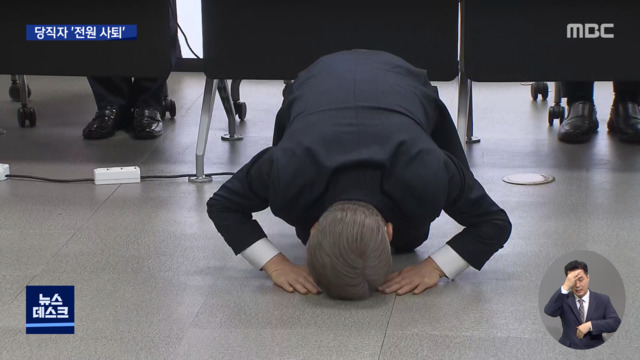Vocabulary
|
pledge |
/plej/ n. - a solemn
promise or undertaking. "The
conference ended with a joint pledge to limit pollution." |
|
vision |
/ˈviZHən/ n. - the ability
to think about or plan the future with imagination or wisdom. "…the
organization never lost sight of its vision and direction" |
|
figure |
/ˈfiɡyər/ v. be a
significant and noticeable part of something. "…the
issue of nuclear policy figured prominently in the
talks" |
|
alliance |
/əˈlīəns/ n. - a
relationship based on an affinity in interests, nature, or qualities. An alliance is
a union between people, groups, countries, etc., or a relationship in which
people agree to work together. |
|
introspection |
/ˌintrəˈspekSH(ə)n/
n. - the process
of examining your own thoughts or feelings. His defeat in
the world championship led to a long period of gloomy introspection. |
Comprehension Questions
What is the pledge of the Democratic Party of Korea’s Lee
Jae-myung?
What was Lee’s vision for SMEs?
How does Lee promote himself?
What are Lee’s election pledges?
What is a “decacorn company”?
Article
The Democratic Party of Korea’s Lee Jae-myung on Wednesday
pledged to increase support for small and medium-sized businesses, vowing to
boost the pandemic-hit economy with “government-led investment” should he be
elected president.
On Wednesday, Lee announced his vision for SMEs at the Korea Federation of
Small and Medium Business in Yeouido, western Seoul.
As a factory worker-turned-politician, Lee has been promoting himself as a
laborer-friendly figure.
“Like the New Deal programs during the Great Depression, we should turn this
crisis into an opportunity through government-led investments,” Lee said. “The
market of creativity and innovation cannot exist without the basic rules of
fairness.”
As part of his election pledges, Lee promised prevention of technology theft
for SMEs, keeping watch on digital platform businesses to prevent them from
taking advantage of small businesses, preventing unfair subcontracts, and more.
Lee also promised investment for new businesses, the establishment of Cloud-based
platforms, setting up a fund for “decacorn companies,” which are privately-owned companies with a valuation of more than 10 trillion won ($8.4
billion).
In regards to small business owners hit by the COVID-19 pandemic, Lee promised
to reduce their burden to pay off rents and promote a “fair business model” for
lease contracts. Also, he stressed reforming the contract system for franchise
businesses.
Continuing the policy initiatives he set forth when he was Gyeonggi Province
Governor, Lee promised to expand local business voucher programs, the
government-run low-fee food delivery app for small business owners, and support
for delivery workers.
“I will prove that respect so that labor and businesses can co-exist. True
business-friendly strategies are based on fairness, not inappropriate
alliances,” Lee said.
After Lee announced his plans, figures from the Korea Federation of Small and
Medium Business called for the government to support and protect the SMEs,
which are going through difficult times.
Meanwhile, earlier Wednesday, Lee apologized on the behalf of the ruling party
at a meeting held for legislation enforcement.
“I will make an apology to show that the Democratic Party
will become a newly reformed, changed party through thorough introspection and
remorse,” Lee said at the party’s headquarters in Yeouido.
Yun Ho-jung, floor leader of the Democratic Party, and other figures from the
party were present at the meeting.
“The priorities of political parties should always be about the people and
their lives. There is not any other excuse,” Lee said, adding that actions
matter more than promises.
The meeting was initially set to be held privately after the opening
statements, but Lee continued to openly discuss some legislative bills with
legislators in front of the press.
“The National Assembly should deal with matters as fast as it can responsibly.
It should also use the ‘fast track’ program to set an agenda if needed so that
the people can see that their (legislators are) doing their job,” Lee
said.
Source: By Im Eun-byel (silverstar@heraldcorp.com),
Nov 24, 2021, http://www.koreaherald.com/view.php?ud=20211124000660
